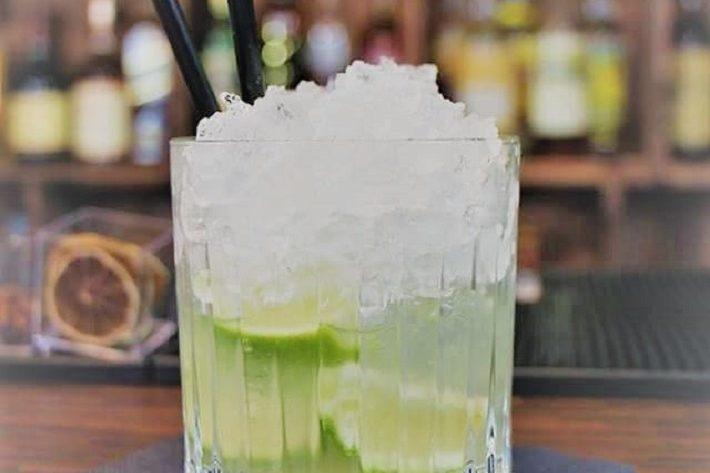Health authorities in Brazil have issued urgent warnings following a series of deadly incidents linked to contaminated caipirinhas, the country’s iconic cocktail. As investigations unfold, several popular venues have suspended sales, and officials are intensifying inspections nationwide to prevent further poisonings. This unexpected crackdown highlights growing concerns over beverage safety amid rising reports of alcohol-related fatalities across the nation.
Caipirinhas Suspended Amid Rising Health Concerns in Brazil
Authorities in Brazil have taken the unprecedented step of suspending the sale and consumption of caipirinhas following a surge in health-related incidents linked to the popular cocktail. Officials report a worrying rise in cases of foodborne illnesses and alcohol poisoning traced back to unregulated production and contaminated ingredients used in local bars. The measures are part of a nationwide effort to curb further outbreaks and protect public health as healthcare facilities brace for increased admissions. Cafés and street vendors are now under strict scrutiny, with routine inspections intensified across major urban centers.
The government issued a list highlighting the most common risk factors associated with the caipirinha crisis:
- Unpasteurized sugarcane juice – a primary source of bacterial contamination.
- Poor hygiene standards in informal drink stalls.
- Excessive use of cheap cachaça with high methanol content.
- Lack of quality controls during production and distribution.
| Region | Reported Cases | Hospitals Affected |
|---|---|---|
| SĂŁo Paulo | 128 | 12 |
| Rio de Janeiro | 95 | 8 |
| Bahia | 67 | 5 |
Investigating the Causes Behind the Deadly Drink Outbreak
Authorities in Brazil have launched an urgent inquiry into the recent surge of fatalities linked to contaminated alcoholic beverages, primarily Caipirinhas, which have become a staple in popular social gatherings. Preliminary investigations point to the possibility of unregulated production methods and the use of methanol-tainted cachaça, the key spirit in these drinks. Health officials have issued warnings against consuming homemade cocktails and have stressed the importance of purchasing alcohol from licensed vendors to prevent further incidents.
Key concerns identified by investigators include:
- Use of illegal distillation processes leading to toxic contaminants
- Distribution of counterfeit or adulterated cachaça across affected regions
- Insufficient public awareness regarding the dangers of methanol poisoning
| City | Reported Cases | Fatalities | Action Taken |
|---|---|---|---|
| SĂŁo Paulo | 45 | 10 | Market Inspection |
| Rio de Janeiro | 30 | 7 | Public Awareness Campaign |
| Belo Horizonte | 12 | 3 | Product Recall |
Authorities Issue Safety Guidelines to Prevent Further Incidents
In response to the recent spate of fatal incidents linked to caipirinhas, Brazilian authorities have issued stringent safety recommendations aimed at safeguarding public health. The Ministry of Health, in collaboration with local law enforcement, urges bars and restaurants to meticulously verify the sourcing and handling of ingredients, especially the sugar and cachaça components which have been identified as potential contamination vectors. Citizens are also advised to avoid homemade or unregulated caipirinhas, as these drinks may contain hazardous additives or improperly distilled spirits.
Key safety measures include:
- Purchasing cachaça only from certified producers
- Ensuring sugar and lime are fresh and hygienically prepared
- Avoiding use of unknown additives or cheap substitutes
- Reporting suspicious or counterfeit liquor sales to authorities
| Guideline | Recommended Action |
|---|---|
| Ingredient Verification | Exclusive use of licensed suppliers |
| Preparation Hygiene | Adopt strict cleanliness protocols |
| Consumer Awareness | Disseminate warnings via media campaigns |
| Regulatory Enforcement | Conduct regular inspections of establishments |
The authorities are ramping up surveillance and have deployed rapid-response teams to hotspots reported with adverse events. Meanwhile, health officials emphasize the importance of public cooperation to halt the circulation of dangerous caipirinha batches, reinforcing that adherence to these guidelines is crucial to preventing further tragedies.
Concluding Remarks
As Brazil grapples with the alarming health risks tied to contaminated caipirinhas, authorities have intensified efforts to safeguard consumers and trace the source of the deadly substances. The nation remains vigilant as investigations continue, underscoring the urgent need for stricter regulations and public awareness to prevent further tragedies. This unfolding crisis serves as a stark reminder of the delicate balance between cultural tradition and public safety in the face of emerging threats.




